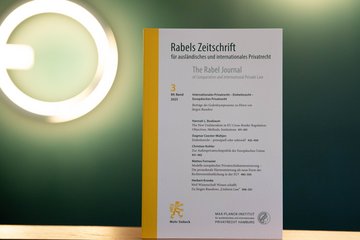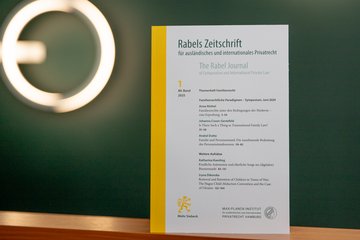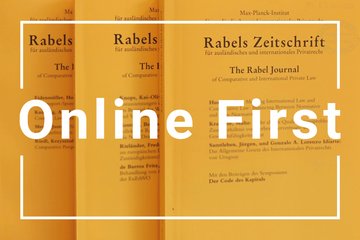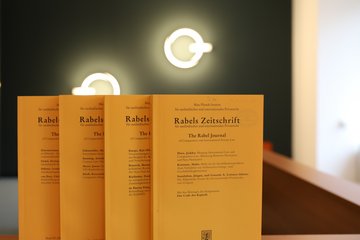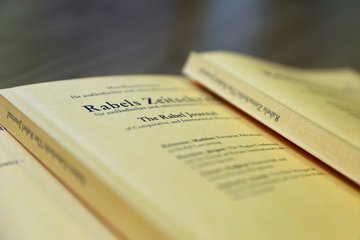The Rabel Journal of Comparative and International Private Law – Rabel Journal
The Journal was founded in 1927 by Ernst Rabel as the principal German forum for fundamental research on the international aspects of private, economic, and procedural law. Areas of specific interest are thus comparative law as well as foreign law in comparative analysis, the conflict of laws, the law of international transactions, and the unification of law, including the law of the European Union. Since 2024, the Rabel Journal has been published gold open access using the “subscribe-to-open” model.
Aims and scope
Since its establishment in 1927, the Rabel Journal has provided legislators with valuable decision-making support through its mediation of experiences beyond Germany’s borders, and in this same vein it compiles knowledgeable commentary on the broad variety of aspects raised by the increasing interconnection and harmonization of law as resulting from international agreements and other sets of rules. The observation of worldwide developments in the field of PIL, including international civil procedure, constitutes a special focus. In addition, in examining diverse topics and methods in all areas of private law, there is a commitment to comparative analysis and often also an interdisciplinary approach.
As an archival journal, the Rabel Journal creates a space for the fundamental treatment of issues from a comparative rather than a purely descriptive perspective; it is an inquiry which is not guided by current events primarily and one which allows global developments to be embedded in their respective contexts. Targeted attention is paid to legal instruments of the European Union and conventions of the Hague Conference on PIL, and special issues allow for a multi-faceted exploration of individual topics. In the “Materials” section, important new legal texts and international agreements are printed, often in translation. A wide-ranging review section facilitates the discussion of domestic and foreign specialist literature.
Institutional framework
The Rabel Journal of Comparative and International Private Law has been in print since 1927 and has been published by Mohr Siebeck in Tübingen since 1946. The Journal has carried the name of its founder as its title since 1961. It appears quarterly in print and as an online version and features an average of approximately 950 printed pages per year. Since 2023 all articles have become initially available as part of an online-first procedure in the publisher's eLibrary, where they remain accessible until being published in print in the next available issue. Since 2024 all RabelsZ articles have been published open access by means of a "Subscribe-to-open" model with Creative Commons licensing (CC BY 4.0) and without the raising of any article processing charges. In addition, all articles published in the Journal since 1927 are now available free of charge.
The Journal is edited by the Max Planck Institute under the auspices of its Directorate (Holger Fleischer, Ralf Michaels, and Anne Röthel). The editorial board of the Journal is entrusted with conducting a peer review of all submitted articles – a process also featuring the involvement of external experts. In addition to Professors Jens Kleinschmidt (Trier), Christoph Kumpan (Hamburg), Klaus Ulrich Schmolke (Erlangen), Kurt Siehr (Zurich and Hamburg), and Wolfgang Wurmnest (Hamburg), the board also includes Institute fellows Mateusz Grochowski and Jan Peter Schmidt (both Hamburg). The review process is coordinated by Christian Eckl. Kurt Siehr is responsible for the review section. The editorial office in Hamburg is staffed by Anke Schild (text editing), Michael Friedman and John Foulks (English editing), and Andrea Jahnke (editorial secretariat).
Procedure
After the submitting author has provided assurance that the manuscript has not been previously published or offered elsewhere for publication, and following a preliminary review by the managing editor, submissions are assessed by the editorial board as a collective expert body. Article submissions should generally comprise 20–30 printed pages, book reviews generally 3–4 printed pages, with one printed page containing approximately 3,000 characters, including spaces and footnotes. The editorial office aims to have the review process completed within a period of 3 to 6 weeks.
By submitting a contribution for publication in the Rabel Journal, authors agree to open access publication of this contribution under the licence CC BY 4.0 in the event of acceptance; at the same time they confirm that they have the necessary rights to do so. In the event of acceptance for publication, the publisher Mohr Siebeck is granted a simple publishing right with regard to the article.
